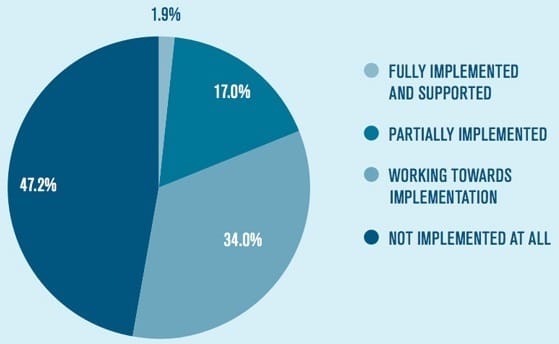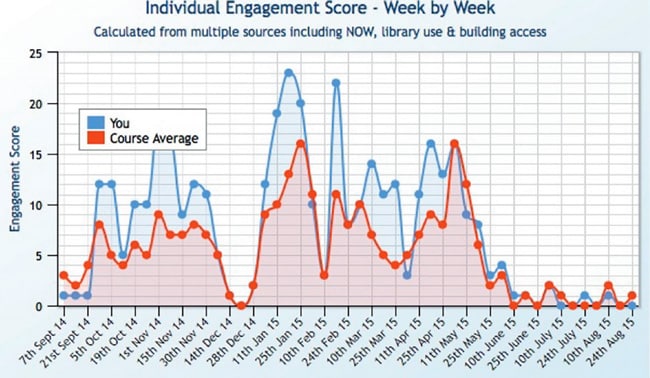Study calls for better data analytics for recruitment and retention
A recently released study points to the importance of improved data systems in higher education, and their potential to both improve the student experience and help drive universities’ business goals.
From Bricks to Clicks: The potential of data and analytics in higher education is the product of a 10-month study by the UK’s Higher Education Commission, an independent body made up of leaders from the education sector, the business community, and the major political parties in Britain.
The study was inspired in part by the changing context of higher education institutions today, and also by some of the resulting pressures on traditional institutional business models. "Higher education is at a point of unprecedented uncertainty and change, with fiscal changes that are leading to increasing focus upon a more student (and customer) focused model," says the study report. "There are new entrants into the market place, some of them offering flexible education online, and increasing focus upon international competition and overseas’ markets. Our inquiry found that institutions today have to respond to many external pressures in an effective and dynamic way, as well as to better understand - and better meet - the needs of the student body, as both key participant and funder of higher education."
The field of "Big Data" and data analytics is wide, but the study wisely narrows its focus on data processes and analysis that can have a material effect on the student’s experience of university. The report focuses on the current state of play and emerging models in the UK, but acknowledges examples from other countries. It notes in particular that systems and tools for data analytics have been more widely adopted in markets such as Australia and especially in the US.
To this point, however, very few UK institutions have adopted data analytics to any great extent. A June 2015 survey of 53 British institutions found that nearly half have not implemented any sort of learning analytics at all, and only one of the responding institutions indicated that analytics were fully implemented and widely supported across the university.

A closer look at learning analytics
The study report clearly highlights that improved student retention is the primary motivation for institutions to adopt more robust analytics systems. This is, the authors note, informed, "by the simple economic driver that it is easier to try and retain existing students than it is to have to go out and recruit another in a competitive market." Student retention has been shown to relate strongly to a stream of data analysis called learning analytics. We can understand the term to describe a process through which data about a student - their characteristics, academic performance, and learning behaviour - is collected and analysed even as their programme of study unfolds. In this important respect, learning analytics differs from predictive modelling or other streams of data analysis in that it is concerned both with observing and responding to the student’s experience in real time. The point of doing so is to allow university staff and teachers to adapt their teaching and also better support students, particularly students-at-risk. Nottingham Trent University (NTU) is a rare example of a UK institution that has widely adopted learning analytics, and is also the subject of a case study in From Bricks to Clicks. The university has found in its analytics work that there are four observable metrics that relate strongly to student success:
- Attendance on campus (which is tracked through swipe card data for building access);
- Library usage;
- Attendance in tutorials;
- Use of the university’s “Virtual Learning Environment", or VLE (that is, the university’s online portal for students).
NTU tracks these factors and combines them so that each student receives an overall engagement score. If a student scores poorly, or has no engagement for a specified period, their instructor receives an alert. That triggers a follow-up with the student to determine what additional supports might be required. Students have access to the same engagement data and can monitor their own progress as well.

















